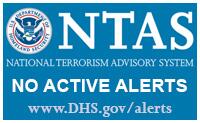- Do not give your personal and/or financial information to strangers, whether it was requested by advertisement, phone, text message or email. Do not call the phone numbers or click on the links that come with these types of messages.
- Do not wire money to a stranger, even if they say they need it to help a relative or family friend of yours.
- Do not wire money to someone you know, claiming to be in some kind of emergency, where you must send funds secretly.
- Do not wire money to anyone you have met only online, regardless of your ‘relationship’.
- Do not give donations to unknown charities. Visit ftc.gov/charityfraud to check if the charity you want to donate to is legitimate.
- Do not invest in low risk, high-return business opportunities. If it’s too good to be true, it’s likely a scam.
- Do not agree to deposit a check into your account and wire the money back to a stranger. If it’s a scam, the check will bounce, and your bank will charge you for it. And you’ll also lose the money you wired.
- Do not play in a foreign lottery. It is illegal. Opportunities to play in foreign lotteries are likely scams.
- Always discuss new medical treatments with your doctor, and only purchase prescription drugs from licensed U.S. pharmacies. Fake medications can be harmful to your health, if not fatal.
- Always read your monthly bank and credit card statements, and notify the relevant institution if anything is not accurate.
If you have been the victim of a scam, you should file a claim with the Federal Trade Commission and also report the scam to your s


